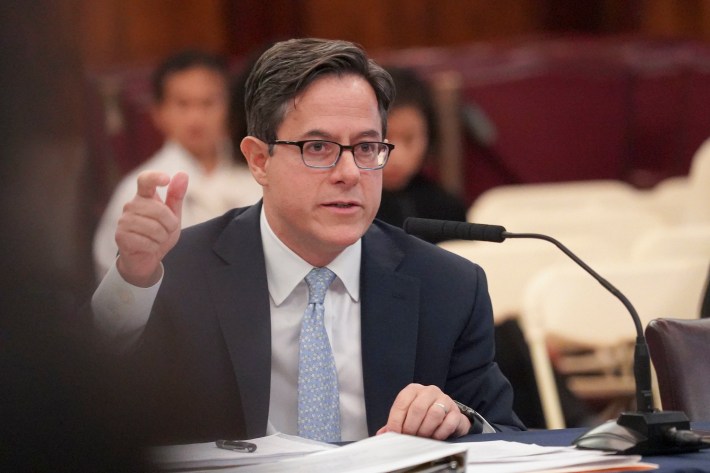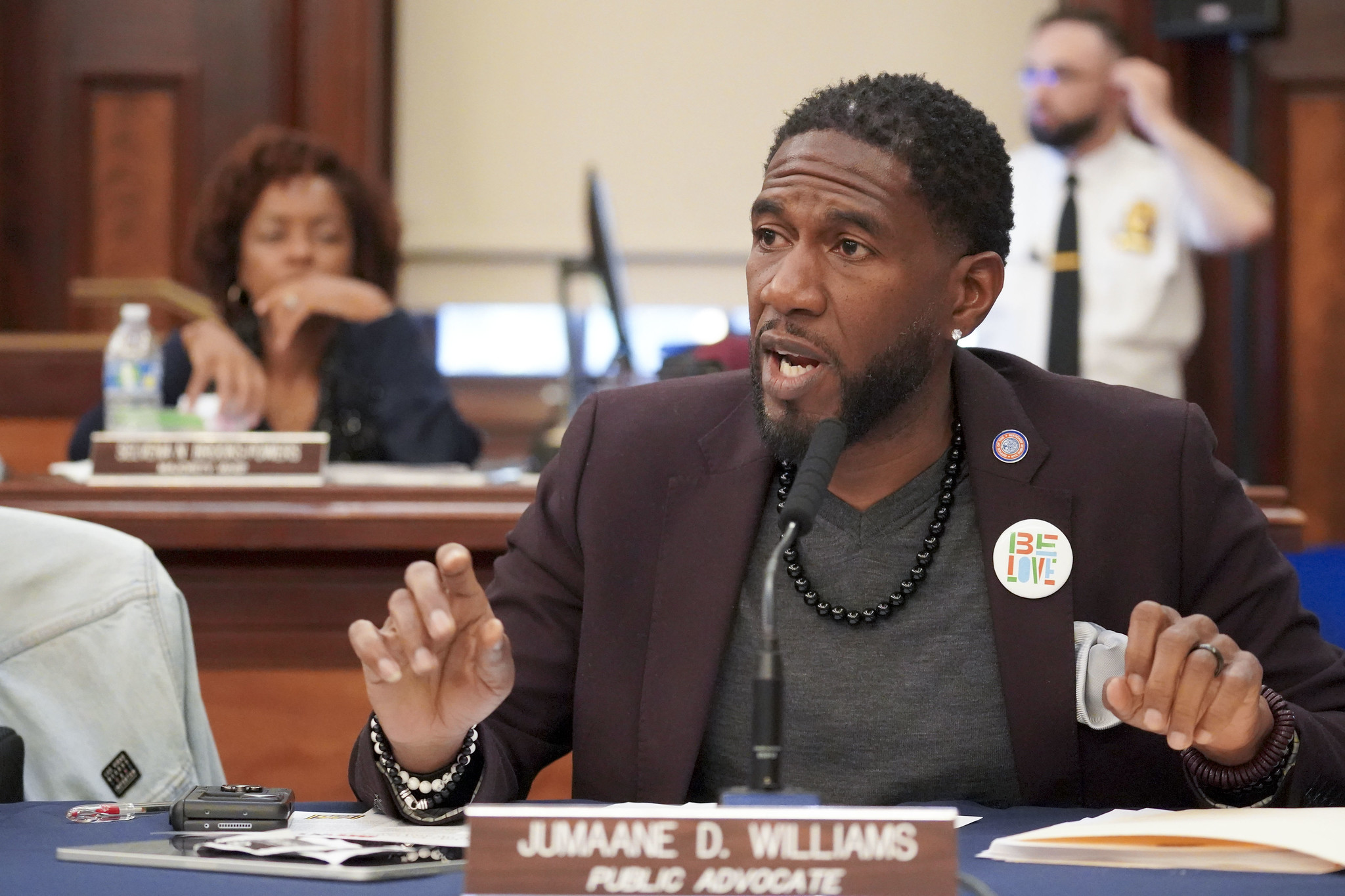The chairman of the City Planning Commission pushed back against a relentless dis- and misinformation campaign on Monday by members of the City Council who oppose the mayor's signature zoning initiative, arguing that eliminating mandatory parking construction would also eliminate all the plan's benefits.
Planning Commission Chairman Dan Garodnick was the public face of the Mayor Adams's sweeping City of Yes rezoning proposal, emphasizing that it is “modest” nature of the plan, that it will not harm low-density districts (where it has been framed as a disaster), and that the removal of parking mandates makes three key pillars of the plan work.
"Accessory dwelling units with a parking minimum does not work, transit-oriented development with parking minimum does not work, town center zoning with a parking minimum, does not work," he said.

Garodnick's strong defense of eliminating mandatory parking came as Public Advocate Jumaane Williams — the next mayor if Adams resigns — came out against removing parking mandates citywide.
"Eliminating mandates in public transportation deserts will be harmful to many neighborhoods," Williams said at the Council hearing. "If this proposal were to move forward, I urge that it be limited to areas within a half-mile of a railroad or subway station."
Williams's view that eliminating mandates will be harmful to neighborhoods is disproved by examples of cities that have already scrapped mandates. In Buffalo and Seattle, where mandates were removed citywide, studies showed that the increase in housing production increased affordability and that parking was still built in developments where there was demand.
Experts and Garodnick warned that without lifting the mandates, the carefully crafted zoning reforms aimed to boost "missing middle" density housing in districts that have produced little to no new homes in recent years, would be mute.

In order to truly address the city's housing crisis, and its affordable housing crisis, experts say the mandates need to be removed.
"There's this feeling that lifting parking mandates is a 'one-size-fits-all' approach, but parking minimums themselves are a 'one-size-fits-all approach,'" Maulin Mehta, the New York director of Regional Plan Association, told Streetsblog. "The entire city would benefit by lifting mandates if we want more affordable housing. Town Center, transit-oriented development, you name it – all of these things are interconnected with [with removing mandates]. There is no point in rezoning that would effectively make development impossible."
The plan, if passed as is, is expected to add 58,000 to 108,900 new units over 15 years. Garodnick went into detail on the three pillars of City of Yes that he said wouldn't work without eliminating mandatory parking construction:
- Transit-oriented development would allow three- to five-story buildings in R1-R5 districts at specific sites within half a mile of subway and commuter rail stations. If parking mandates still existed, it would be impossible for developers to build this type of building with the high mandates in these low-density areas.
- "Town Center Zoning" allows three- to five-story residential buildings with ground-floor retail in areas with a commercial overlay. Without the elimination of parking mandates, a developer would have to build too much parking for the housing to be feasible and to have enough space for ground floor retail.
- To add an accessory dwelling unit — which is typically a structure already on a homeowner's property, a homeowner would be forced to also add an on-site parking spot, for which there simply may not be room.
"Elimination of parking minimums is extremely important here. It is very important for many of the sub-parts of this proposal and we hope the Council keeps it. It’s very key to everything that we are trying to do,” said Garodnick at Monday’s hearing.
Nonetheless, the parking mandates continue to be a sticking point for some Council members who said that City of Yes would eliminate parking or the right of developer to build parking, neither of which is true.
Council members Linda Lee (D-Queens), Bob Holden (D-Queens), Selvena Brooks-Powers (D-Queens), Rafael Salamanca (D-Bronx), Kristy Marmorato (R-Bronx), Joann Ariola (R-Queens), and Mercedes Narcisse (D-Brooklyn) all joined Williams in opposing removing the costly mandate.
In addition to parking, the other lines of questioning showed the Council’s desire to make this hearing, and the rest of the City of Yes review process, into a discussion about much more than just the zoning proposal on the table.
“City of Yes cannot just focus on new housing, but must address needs of current residents, especially homeowners," said Council Member Kevin Riley of the Bronx. "For my district, that means addressing the flooding and providing affordable home ownership opportunities."
Homeownership and infrastructure concerns dominated the conversation, but the City of Yes's Environmental Impact Statement found that the plan doesn't build homes quickly enough to disrupt infrastructure, debunking several Council members who brought up flooding and running out of parking spaces.
"The city needs to continue to address the known problems," said Garodnick. "This proposal with its modest nature would not actually significantly impact the current circumstances. It's so little density being added that it would not have a significant effect on infrastructure."
On Tuesday, the City Council's Subcommittee on Zoning and Franchises will continue with the public testimony portion of the hearing. Members of the public can sign up to speak in person or virtually at the council's website.






